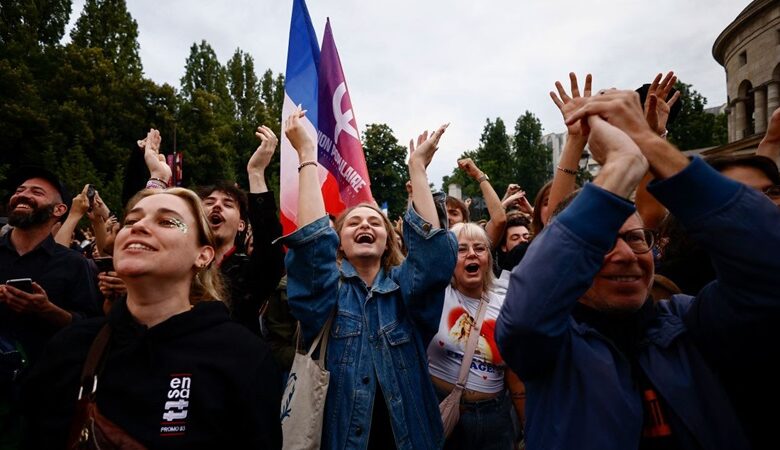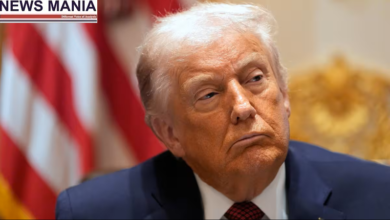French Elections Take Surprising Turn: Left Coalition Surprises with Most Seats in Legislative Elections

News Mania Desk/Agnibeena Ghosh/8th July 2024
In a surprising turn of events, a coalition of the French left emerged with the most seats in the high-stakes legislative elections held on Sunday. This outcome defied expectations and countered a far-right surge, although the left coalition fell short of winning a majority. This result leaves France, a key pillar of the European Union and the upcoming Olympic host, facing the prospect of a hung parliament and potential political paralysis.
President Emmanuel Macron had called for the election on June 9, seeking clarification after the far-right surge in the European Parliament elections. However, this strategy appears to have backfired. According to the official results released early Monday, none of the three main blocs secured the 289 seats required to control the 577-seat National Assembly, the more powerful of France’s two legislative chambers.
The New Popular Front leftist coalition placed first with just over 180 seats, ahead of Macron’s centrist alliance, which secured more than 160 seats. Marine Le Pen’s far-right National Rally and its allies came in third with more than 140 seats, marking a significant improvement from their previous best showing of 89 seats in 2022. The hung parliament is unprecedented in modern France.
Prime Minister Gabriel Attal, who plans to offer his resignation, highlighted the unprecedented nature of the political situation. With the Paris Olympics looming, Attal said that he is ready to stay at his post “as long as duty demands.”
As Macron prepares to attend a NATO summit in Washington, France faces uncertainty over its next prime minister and the potential need for the president to share power with a politician opposed to his policies. Despite the political turmoil, many on the left celebrated the election results. In Paris’ Stalingrad square and Republique plaza, supporters cheered and applauded as the leftist alliance’s projections were announced.
The election results have profound implications for France’s political landscape. The leftist coalition’s success represents a significant shift in the country’s political dynamics, challenging Macron’s centrist policies and the rising influence of the far-right. The left’s strong performance indicates a resurgence of progressive politics in France, driven by public discontent with the status quo.
Macron’s government now faces the challenge of navigating a fragmented parliament, which may hinder the implementation of his legislative agenda. The prospect of a hung parliament raises concerns about potential political gridlock, which could impact France’s ability to address critical issues, including economic recovery, social reforms, and its role within the European Union.
The far-right’s significant gains also underscore the growing polarization in French politics. Marine Le Pen’s National Rally capitalized on voter dissatisfaction with traditional parties, gaining substantial support despite falling short of a majority. This development signals a persistent and influential far-right presence in France’s political arena.
As France approaches the Paris Olympics, the country faces a period of political uncertainty. The election results underscore the need for effective leadership and cooperation among political factions to ensure stability and progress. Macron’s ability to build alliances and negotiate with opposition parties will be crucial in steering France through this challenging period.






